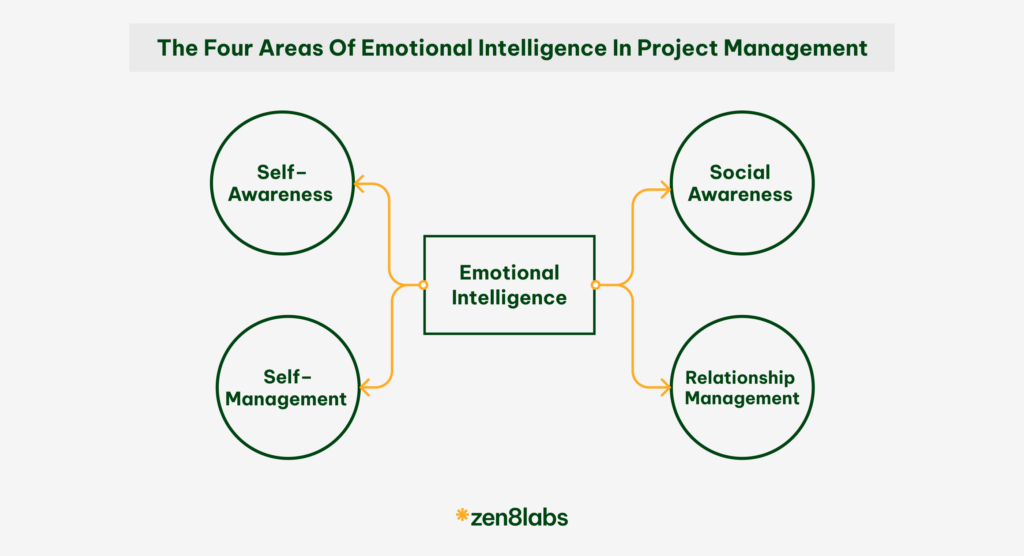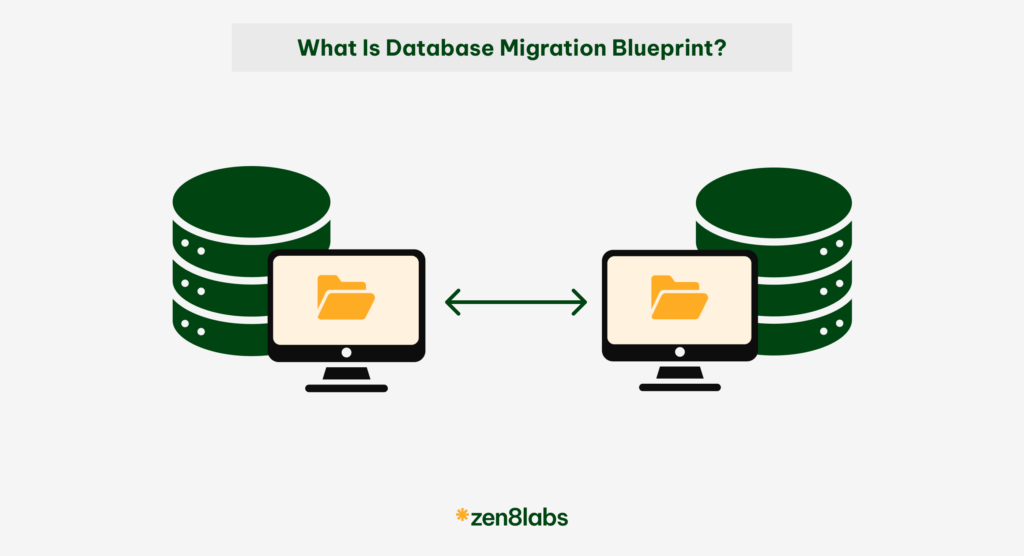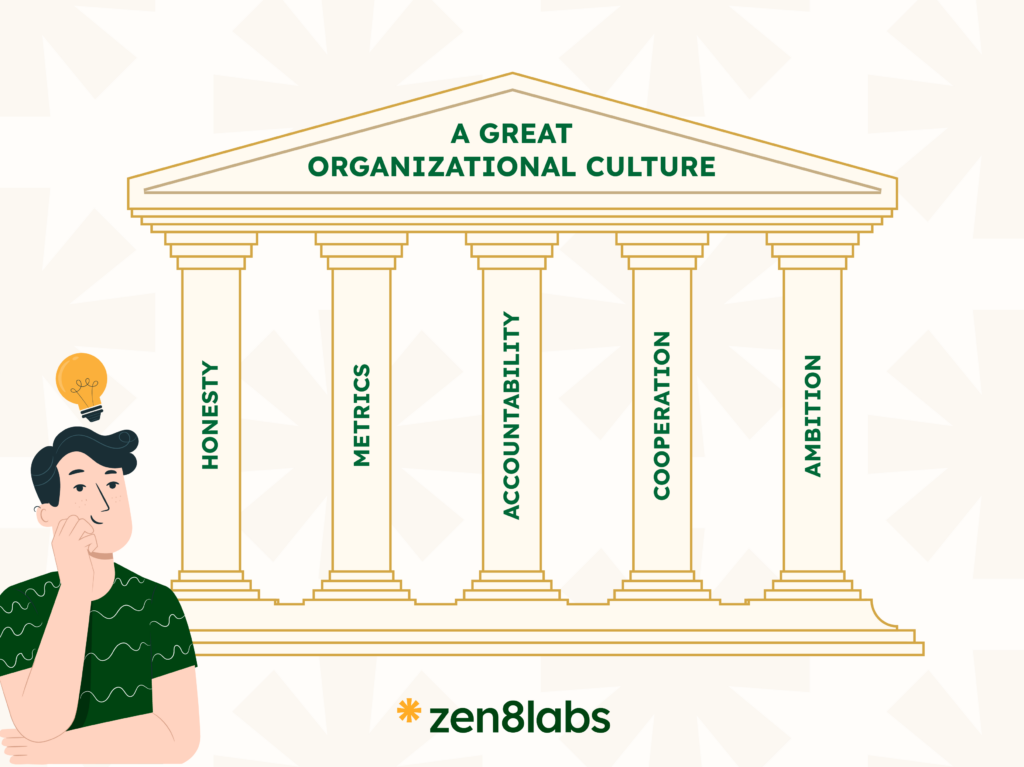
Emotional intelligence is the ability to recognize, understand, and manage our own emotions and those of others. This skill is essential for building strong relationships, fostering collaboration, and resolving conflicts within project teams. At zen8labs, we understand how emotion can drive team members’ behaviors. Therefore, our project management team uses this understanding of emotional intelligence to deal with issues and conflicts why the project is processing.
There are 4 quadrants of Emotional Intelligence: Self-awareness, Self-management, Social-awareness, and Relationship management. In my blog I will go through these 4 areas and give a quick explanation to each area.
Self–awareness
Self-awareness is the ability to identify and label our emotions as they arise. It is a crucial step in enabling us to consciously decide how we want to respond to a given situation. Self-awareness comprises of three key competencies these are including:
- Emotional self-awareness: This key competence is achieved when you are able to read and understand your emotions as well as recognize the impact of these emotions on your work performance and relationships.
- Accurate self–assessment: Here is when you are able to give a concrete evaluation of your strengths and weaknesses.
- Self-confidence: Self-confidence comes about when you have a strong and positive sense of your worth. Being able to have a critical self-reflection of yourself is the key to achieving self-awareness.
Self–management
It is the second quadrant of emotional intelligence, and it is created by 5 competences:
- Self-control: This is when you can keep disruptive emotions and impulses under control and not let them get the better of you.
- Transparency: This involves maintaining a standard of honesty and integrity while managing yourself and your responsibilities.
- Adaptability: This is when you are flexible in adapting to changes and in overcoming challenges.
- Achievement orientation: A good project is achievement oriented. The idea behind it is having a drive to meet the internal standard of excellence that you use in your projects.
- Initiative: This is the readiness to seize opportunities and act on them.
Social awareness
Once you have sorted yourself out in the areas of self-awareness and self-management, you can work on developing social awareness and empathy for others, including:
- Empathy: Empathy is when you are able to understand the emotions of others and you are willing to take active interest in their concerns.
- Organizational awareness: The ability to know when to be organizationally aware starts when you can read the trends of corporate organizational life, building networks, and navigating through the politics of that organization.
- Service orientation: This is when you can recognize and being able to meet your customers’ needs.
Relationship management
As a project manager or a team leader, once you detect your team members are stuck, frustrated or upset. You can use your ability to influence, inspire, lead or develop others to help motivate your team to do their collaborate with each other, by using these below techniques:
- Visionary leadership: This is when you are able to inspire and guild groups and individuals alike.
- Developing others: Encouraging others to be the best version of themselves. It is aimed to strengthen, help and support the abilities of others through feedback and guidance.
- Influence: Influence is the ability to exercise a wide range of persuasive strategies with integrity and being able to listen and send clear, convincing and well-tuned messages to others.
- Change catalyst: This is proficiency in initiating new ideas and leading people in a new direction.
- Conflict management: Being able to have discussions that can lead to disagreements being resolved and develop collaborative solutions to the benefit of all.
- Building bonds: This involves building and maintaining relationships with others.
- Teamwork: Teamwork is important for any project. It begins when you are able to collaborate with others towards achieving common goals. It is the promotion of cooperation and building of teams.
Conclusion
Emotional intelligence is a powerful asset in the modern project manager’s toolkit. As projects grow more complex and teams more diverse, the ability to manage not only tasks but also emotions become critical to success. By developing emotional intelligence, project managers can lead with empathy, foster stronger collaboration, and navigate the inevitable ups and downs of project life with greater ease.
Ultimately, emotional intelligence is what separates good project managers from great ones—those who can build and maintain strong relationships, keep their teams motivated, and ensure project success in even the most challenging circumstances. If your project requires that delicate touch, then zen8labs has the skills to meet your needs.
Phuong Nguyen, Quality Assurance Engineer


